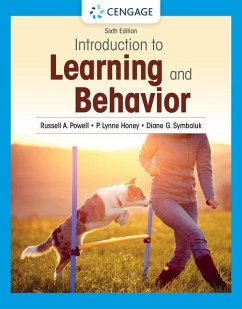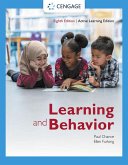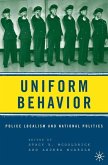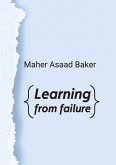Gain a clear understanding of the basic principles of learning and behavior and how you can apply this information to better understand and improve today's world with Powell/Honey/Symbaluk's INTRODUCTION TO LEARNING AND BEHAVIOR, 6E. This engaging, student-friendly behavioral approach to psychology uses examples derived from both animals and humans to vividly illustrate the relevance of behavioral principles in comprehending and impacting human behavior. Updated, expanded coverage and a dedicated appendix address self-control and behavior self-management in detail with specific tactics you can immediately apply. "Study Tip" guide you in strategies, from effectively reading texts to using procedures to increase concentration and reduce procrastination. You also see how principles apply to managing relationships and raising children. Numerous innovative and updated review, self-testing, learning and independent study features further your understanding of key concepts.
Bitte wählen Sie Ihr Anliegen aus.
Rechnungen
Retourenschein anfordern
Bestellstatus
Storno








